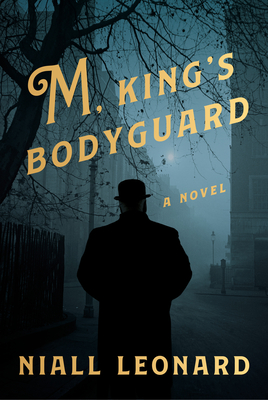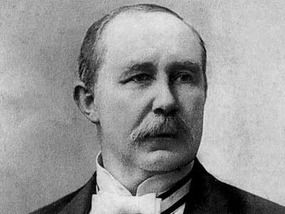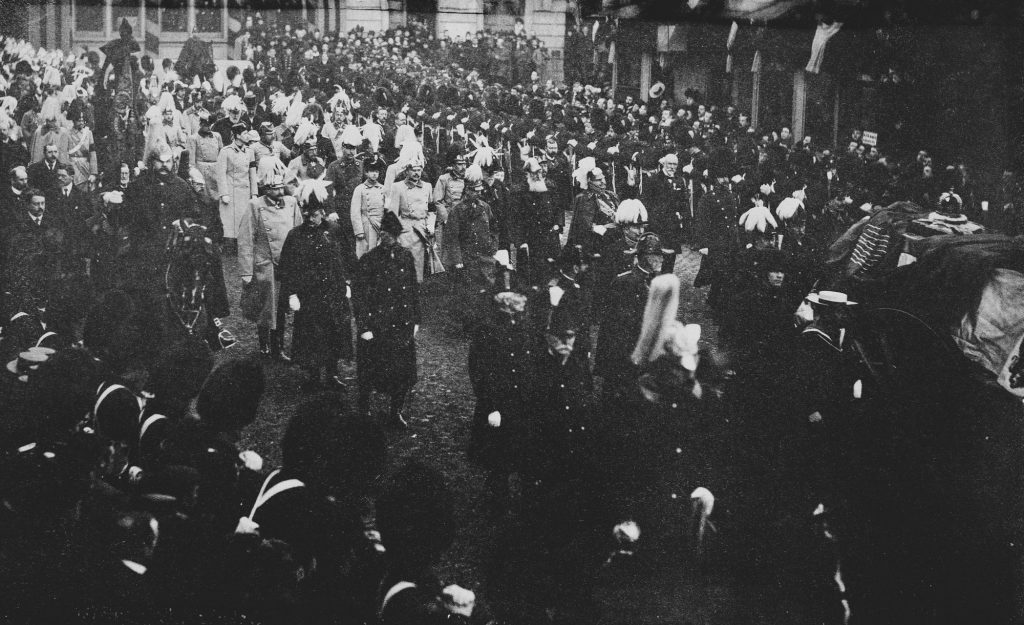 M, King's Bodyguard by Niall Leonard
M, King's Bodyguard by Niall Leonard Format: eARC
Source: supplied by publisher via Edelweiss
Formats available: hardcover, ebook, audiobook
Genres: espionage, historical fiction, historical mystery, thriller
Pages: 272
Published by Pantheon on July 13, 2021
Purchasing Info: Author's Website, Publisher's Website, Amazon, Barnes & Noble, Kobo, Bookshop.org
Goodreads
Based on a true story, M, King’s Bodyguard is a gripping, atmospheric thriller about anarchy and assassination in Edwardian London, and one detective’s mission to preserve the life of his king and prevent a bloody war in Europe.
From humble beginnings in Ireland, William Melville has risen through hard work, intelligence, and occasional brute force to become head of Britain’s Special Branch, personal bodyguard to Queen Victoria and her family, and the scourge of anarchists at home and abroad. But when in January 1901 the aged Queen dies and the crowned heads of Europe converge on London for her funeral, Melville learns of a conspiracy, led by a mysterious nihilist known only as Akushku, to assassinate Kaiser Wilhelm of Germany at the ceremony.
Racing to prevent the atrocity, Melville and his German counterpart Gustav Steinhauer find themselves tangled in a web of adultery, betrayal, and violence. As the funeral looms ever closer, Melville realizes that Akushku is the most resourceful and vicious foe he has yet encountered—but is the real threat from Melville’s enemies, or his allies?
My Review:
It’s fascinating to learn that this is based on a true story. Possibly a bit loosely. But the bare bones of these events really happened. It’s even more fascinating to learn that another story, a much more famous one, owes its origins to this same set of events. Sorta/kinda.
Let me explain.
When this story opens, we’re in London, in 1901, experiencing that time and place through the mind of William Mellville, the Head of Special Branch. (The name of that agency may sound familiar. Thomas Pitt, one of the protagonists of Anne Perry’s historical mystery series, becomes Head of Special Branch in the 21st book in the series, The Whitechapel Conspiracy. It’s a title he still holds in 1910 when the series featuring his son Daniel opens with Twenty-One Days. Honestly, I thought Perry made the agency and the title up for her series. Now I’m wondering if Pitt was based a bit on Melville.)
Thomas Pitt is a fictional character, but William Melville is not. When we meet him and get inside his head at the beginning of this book, an era is about to end, and Melville is going to be one of the close witnesses to what happens next. Especially if it explodes.

That’s because the events in this story are based on historical fact. The outlines of this case actually happened. William Melville, the title character of this book, was, in addition to his position as Head of Special Branch, one of the high-level bodyguards tasked with keeping the royal family safe, and it’s in that combined set of duties that he becomes the focal point of this story.
It is 1901, and Queen Victoria’s death is imminent. She has ruled for 63 years, and is the only queen that most Britons have ever known. (Only Elizabeth II has ruled longer.) Melville’s duty is to assist in the preparations for her State Funeral, and to deal with any security issues which it will engender.
There will be plenty. Queen Victoria was related to most of the crowned heads of Europe, and many are planning to attend her funeral. In an era when terrorism was on the rise and it seemed like anarchists, nihilists and revolutionaries were springing up at every turn, it is Special Branch’s remit to keep an eye on every organization that might tip over into violence and stop it before it happens.
Queen Victoria’s funeral will present would-be assassins with a veritable cornucopia of crowned heads to cut down or chop off, all marching in a stately procession along a predetermined route, with the newly crowned King Edward VII and his nephew, Kaiser Wilhelm II of Prussia in a prominent – and easily targeted – position.
When Melville learns of a plot to assassinate the Kaiser during the procession, he spends every waking moment – of which there are entirely too many – tracking down the would-be assassin. He is aided by the Kaiser’s own bodyguard, Gustav Steinhauer.
In a Europe where the old guard is dying, with revolution on every horizon, the storm clouds of war are gathering. Melville’s motives and loyalties are clear – even if his methods are sometimes questionable.

Steinhauer appears to be a comrade in arms, working at Melville’s side to prevent the potential assassination of one or both of their charges. The plot is real enough, but the impulse behind it is murky, at least partially obscured by a man that Melville wants to trust, whether he should or not.
Escape Rating A: I misread the title of this book, and as a consequence got something different – and much better – than I was expecting. I read the comma in the title as a period, so I thought it was M. King’s Bodyguard, as in someone was guarding someone named M. King, or, from the blurb, that it was intended as “M. King” a nom-de-plume for the king himself.
Instead, this is a story about the person who might have been the inspiration for Ian Fleming’s famous “M”, the head of the Secret Service for which James Bond is an agent. William Melville, after all, rose from Head of Special Branch to become the first head of the organization that eventually became MI5, the British Security Service.
The case in this book really happened, but probably not quite the way it does in the story. The very beginning of the action is based on Gustav Steinhauer’s own autobiography. How accurate he was at telling his own story, and how much he obscured is anyone’s guess. After all, he was Melville’s counterpart, not just the Kaiser’s bodyguard but also the head of the Prussian – later German – Intelligence Service.
But the heart of this story – and this case – is Melville’s desperate race to discover the would-be assassin and prevent the assassination. It’s a race against the clock that draws the reader into Melville’s world and his desperation to stop the terrorist before he starts a war in the streets of London that will reverberate around the world.
To some extent, Melville is like the boy sticking his fingers in the dike. We know the war is going to happen no matter what he does. But it doesn’t have to begin in a bloodbath at Queen Victoria’s State Funeral, and it doesn’t have to begin on his watch on his own turf.

His opponent is intelligent and well-trained, and his right hand is none too certain what his left-hand man, Steinhauer, knows and isn’t sharing. There were times in the story where I wondered if Steinhauer himself was the assassin and was leading Melville on even more of a wild goose chase than he actually was.
This was a terrific thrill-ride of a story, all the better for being based in the real. Melville is enough of an outsider to be a dispassionate observer of the people around him, including royalty, while still being a staunch defender of the status quo for reasons that make sense to both the character and the reader. Steinhauer is as much a puzzle to the reader as he is to Melville, serving as acolyte, foil and antagonist by turns, always hiding his real self in the shadows.
The portrait of an era as it ends, that period when the old order was fading, the world was changing, the status quo was falling to pieces and the war we know was inevitable still seemed preventable is heartbreaking, frustrating and compelling by turns. I couldn’t put this one down. If you enjoy historical mysteries, thrillers and/or espionage tales, you won’t be able to either.
